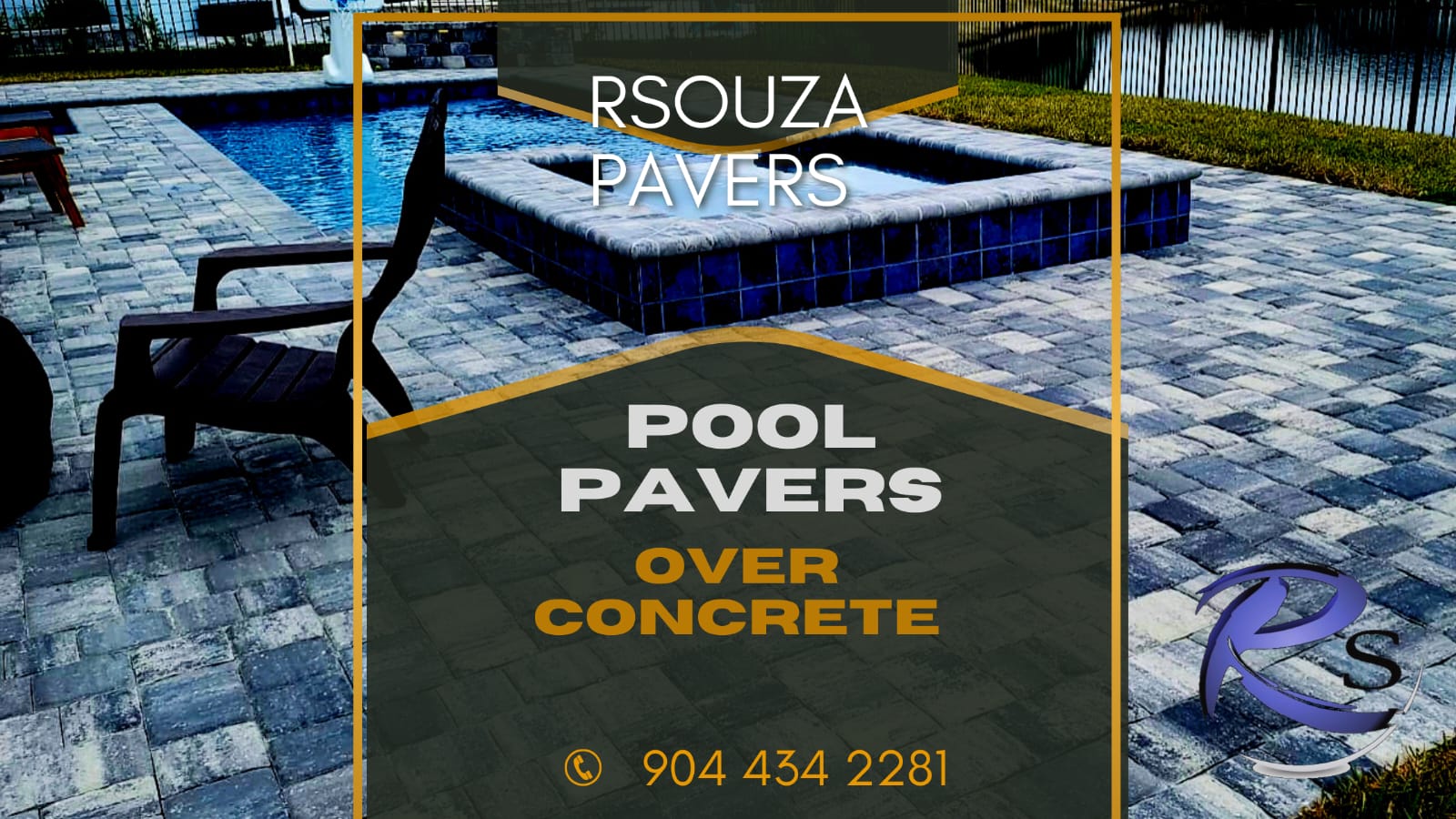Do you have an outdoor pool area that is starting to show signs of wear and tear? Are you thinking of replacing the concrete surface with pool pavers? If so, you’re not alone. Pool pavers are becoming a popular trend among pool owners who want their pool area to look great, but don’t want to spend a fortune. In this blog post, we’ll take a look at the benefits and drawbacks of pool pavers over concrete and determine whether it’s worth the investment.
Overview of Pool Pavers
What exactly are pool pavers? Pool pavers are a relatively new product that brings beauty and functionality to any pool area. Pool pavers are tile-like pieces of concrete or stone that are installed to create a durable, attractive surface around a pool. Most pool pavers are available in a variety of colors and designs and can give your pool area a stylish, modern look.
Pros and Cons of Pool Pavers Over Concrete
Before deciding whether pool pavers are right for you, it’s important to understand the pros and cons of using them. Here are a few important things to consider:
Pros of Pool Pavers
1. Visually Appealing
One of the biggest advantages of pool pavers is their visual appeal. Unlike concrete, pool pavers are available in a variety of colors, textures, designs, and size. This makes it easy to create a unique and visually appealing look for your pool area.
2. Cost-Effective
Pool pavers can be a much more cost-effective option than concrete in many cases. Pool pavers may require a larger upfront investment, but if installed correctly can also last for many years with minimal maintenance. This makes pool pavers an attractive option for budget-minded pool owners.
3. Flexible
Another advantage of pool pavers is their flexibility. Unlike solid concrete slabs, pool pavers are flexible and can be easily cut and adjusted to fit around curves and unusual shapes. This makes them perfect for installations on sloped or uneven surfaces.
4. Versatile
Pool pavers can also be used to create a variety of looks. Pool pavers can be used to create a sleek, modern look or a more traditional stone-like appearance. This makes them a great way to customize your pool area and make it your own.
Cons of Pool Pavers
1. Durability
Though pool pavers are generally quite durable, they are still prone to cracking and chipping over time, particularly if installed on an uneven surface. If pool pavers become damaged, they may need to be replaced, which can be expensive.
2. Maintenance
Unlike concrete, pool pavers must be sealed every few years to maintain their appearance and integrity. Sealing is a time-consuming and labor-intensive process and if not done properly can lead to further damage.
3. Installation
Pool pavers can also be difficult to install. This can be an even bigger challenge if you’re working with an uneven surface or complicated shapes. Hiring a professional installer can be expensive and can add to the cost of the project.
4. Time-Consuming
Installing pool pavers is also time-consuming, as it requires careful measuring, cutting, and laying of the tiles. This can take days or even weeks if you’re not experienced at this type of work.
Pool Paver Styles and Materials
Tile Pool Pavers
Tile pool pavers are available in a variety of shapes, sizes, textures, and colors. These tiles are specially designed to be used as pool pavers and can be used to create a sleek and modern look. The biggest advantage of tile pool pavers is that they are low-maintenance and won’t chip or crack as easily as some other types of pool pavers.
Limestone Pool Pavers
Limestone pool pavers are a popular choice for those looking for a more traditional look. These pavers are available in a wide range of hues and can create a beautiful, natural look around your pool. They are also durable and relatively low-maintenance, making them a great choice for a long-term installation.
Brick Pool Pavers
Brick pool pavers are another popular choice for pool owners. These pavers are available in a variety of shapes and sizes and can be laid in a variety of patterns for a unique look. They are also very versatile and can be used for in-ground pools, on-ground pools, and even above-ground pools.
Travertine Pool Pavers
Travertine pool pavers are a great choice if you want a natural look that is still easy to maintain. Travertine pavers are available in a variety of earthy colors and can create a classic, timeless look around your pool. They are also very durable, which makes them a great choice for any pool area.
Choosing the Right Pool Paver Material and Style
When selecting pool pavers, it’s important to consider the style of your pool area, the climate in your area, and the budget for the project. Each type of pool paver has its own advantages and disadvantages, so be sure to take these into consideration before making a choice. Keep in mind that pool pavers are a long-term investment and it is important to select a suitable material and style that will look great for years to come.
Hiring a Professional Pool Paver Installer
Though it is possible to install pool pavers yourself, it is recommended to hire a professional to ensure that the job is done right. A professional pool paver installer will have the experience and expertise to properly prepare your pool area and accurately lay your pavers.
Cost of Pool Paver Installation
The cost of pool paver installation varies depending on the type and size of the paver desired. Generally, the larger the area and the more intricate the design, the higher the cost. There are also additional costs such as materials, labor, and sealing that may need to be taken into account.
Conclusion – Pool pavers over concrete
Pool pavers can be a great way to improve the look and feel of your pool area. They are available in a variety of styles, materials, and colors and can be used to create a unique, modern look.
Though pool pavers may require a larger upfront investment, they can last for many years if installed correctly and can be more cost-effective than concrete in the long run. Consider the pros and cons of pool pavers over concrete before making a decision and be sure to hire a professional installer to ensure the best possible results.

